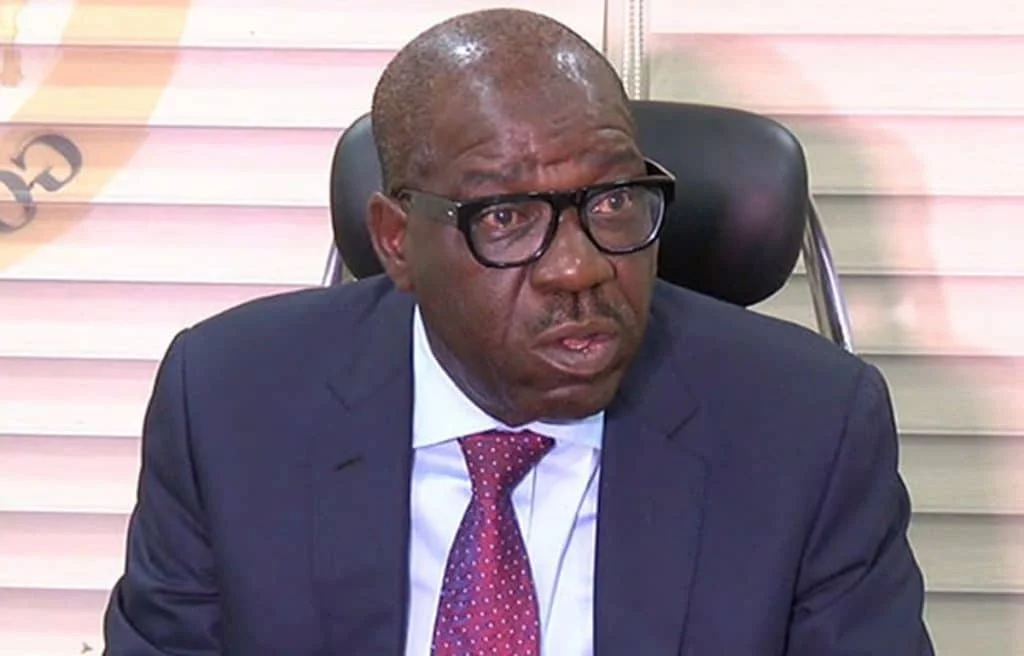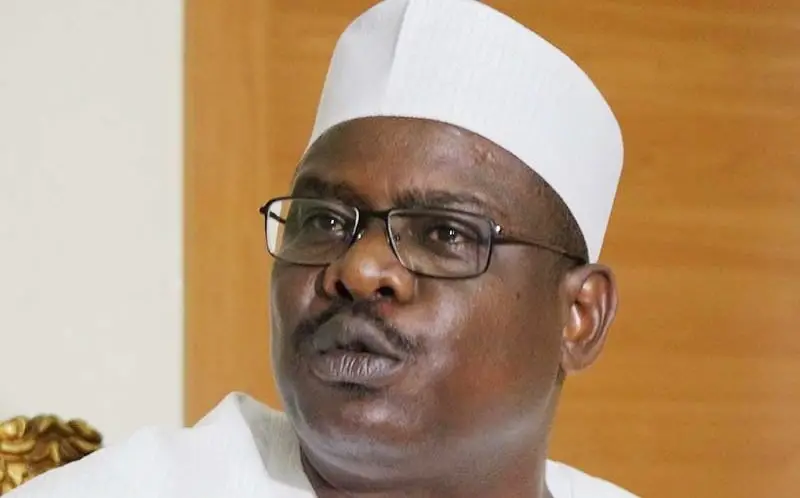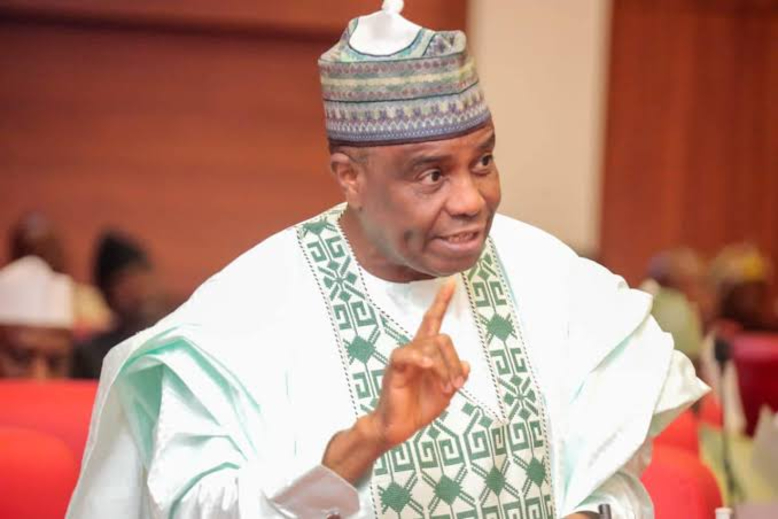News
EFCC Increases Charges Against Fayose’s Ally To 24

The Economic and Financial Crimes Commission has increased the charges against Abiodun Agbele, an ally of a former Ekiti State Governor, Ayodele Fayose, from 11 to 24.
The EFCC had in 2016 arraigned Agbele, alongside a former Minister of State for Defence, Musliu Obanikoro; Sylvan Mcnamara Limited; Lt. A.O Adewale; Tunde Oshinowo and Olalekan Ogunseye (all at large) at a Federal High Court in Abuja on 11 charges of money laundering to the tune of N1.219bn.
The money is part of N4.7bn allegedly transferred from an account belonging to the Office of the National Security Adviser in the Central Bank of Nigeria.
In the amended charges, Agbele, Sylvan Mcnamara Limited, De Privateer Limited, and Spotless Investment Limited were listed as the first to fourth defendants.
The EFCC accused Agbele of indirectly accepting N1.219bn cash through an official of Zenith Bank in Akure from Obanikoro on behalf of Fayose in June 2014 without going through a financial institution.
READ ALSO: Shaibu Breaks Silence On Impeachment Saga
The EFCC said he committed an offence contrary to Section 1(a) of the Money Laundering (Prohibition) Act 2011(As Amended) and punishable under Section 1503) of the same Act.
The EFCC also accused Agbele of aiding De Privateer to commit an offence to take possession of N200m which formed part of N1.219bn, a proceed of money laundering on behalf of Ayo Fayose contrary to section Section 18(A) of the Money Laundering Prohibition Act 2011 (as amended) and punishable under Section 18 of the same act.
When the charges were read to him during the proceedings on Tuesday, he pleaded not guilty.
At the resumed trial, a former Central Bank of Nigeria official, Aliyu Mukadas, had while being led in evidence by counsel for the EFCC, Wahab Shittu told the court that a total sum of N4.15bn was paid to Sylvan Mcnamara Limited’s account.
At the proceedings in November 2023, a former Minister of State for Defence, Musiliu Obanikoro while giving evidence in the court stated that Sylvan Mcnamara Ltd’s account “was created to deal with the issue of Boko Haram in Lagos, the account was created by Taiwo Kareem and was used for the purpose of disbursing funds for election.”
READ ALSO: Man To Die By Hanging In Ekiti For Armed Robbery
Mukadas stated that money was paid in trances to the company’s Diamond Bank account.
The retired CBN staff also confirmed that the National Security Adviser maintains an account with the apex bank meant to fund security operations and not elections.
He said, “I worked with CBN for 30 years at its Abuja branch and banking services department where I retired last year.
“We effected payments to all ministries or departments. The Office of National Adviser is one of the agencies having an account with the CBN.
“The purpose of the NSA account is for security operations, not for election purposes.
“We paid N200m to Sylvan Mcnamara Limited through Diamond Bank.
We also paid N2bn, N700m, N1bn and N225m into Sylvan Mcnamara Limited.”
READ ALSO: President Tinubu To Launch Students Loan Scheme Thursday – Presidency
When asked if he knew what the money was used for, Mukadas replied that he was not aware.
During cross-examination by Agbele’s counsel, Lekan Ojo (SAN)
Mukadas confirmed to the court that the payment mandate was verified before the payments were made.
When asked if the payment mandate showed the purpose for which the funds were to be paid to the company, the retired CBN official said, “For services rendered.”
He, however, said he had no suspicion the money was for fraudulent purposes.
Another witness called by the EFCC, a former Chief Executive Officer of Zenith Bank, Peter Amagbo denied the bank funded the Ayo Fayose’s re-election campaign.
READ ALSO: Troops Arrest Suspected Killers Of Community Leader, Retired Military Personnel
He said, “We did not fund election for Ekiti state. We didn’t have any meetings with my chairman and Fayose. I have never seen Agbele before. I met Fayose once as MD/CEO. My second meeting with him was an ex-governor during a friend’s father’s funeral.”
Amagbo informed the court that the bank was with the state before the emergence of Fayose and sustained that during his tenure.
He said, “We had a relationship before Fayose and it was maintained during his time. ”
When asked if he was privy to all conversations or interactions between Fayose and the bank he said, “No. The governor deals with people in their location.”
When further asked since he was not privy to the conversation between Fayose and the bank, he was not in the position to know if the bank had promised to assist Fayose.
Amagbo said, “I am the head of the management of the bank. The chairman is a part-time member of the management. He needs my approval to do that and he knows that we do not sponsor elections.”
Justice Nnamdi Dimgba, however, adjourned the matter till May 2, 2024, for the continuation of trial.
News
Ex-Edo Gov Obaseki Reacts As His Cousin Is Beaten, Stripped

The immediate past governor of Edo State, Godwin Obaseki, has reacted to the attack on Don Pedro Obaseki, the Chief Executive Officer of Osamudia Farms.
Don Pedro Obaseki, a cousin to the immediate past governor was attacked at Uwa Primary School where he went to play football.
In a viral video, Pedro Obaseki is seen kneeling at the Oba of Benin Palace gate, before he was dragged into the palace where he was asked to crawl before some chief walked up to the scene and rescued him.
Reacting, the ex-Edo governor described the act as a “grave violation of fundamental human rights and a reckless disregard for the rule of law.”
READ ALSO: Obaseki Beaten, Stripped In Edo
Obaseki, said: “I call on security agencies to immediately investigate this matter thoroughly and transparently, identify those responsible for this barbaric act and ensure they are held accountable in accordance with the law.
“A situation where thugs and non-state actors appear to freely take the law into their own hands on behalf of high-profile individuals and those in positions of authority can only result in one outcome, a degeneration into a state of anarchy, which will do no one no good.”
He further charged, “I urge human rights organizations, civil society groups, and all well-meaning Nigerians to lend their voices and speak out firmly against this injustice and gross violation of human rights.”
News
New Tax Laws: Suspend January 2026 Implementation — Senator Ndume Tells Tinubu

Former Senate Leader, Ali Ndume has appealed to President Bola Ahmed Tinubu to suspend the January 1, 2026, implementation of the country’s new tax laws amid growing controversy.
The federal lawmaker made the appeal in a statement he issued on Wednesday in Abuja.
This comes as the Nigerian Bar Association demanded the suspension of the implementation.
Recall that a member of the House of Representatives, Abdussamad Dasuki, had last week called the Parliament’s attention to alleged alteration to the tax laws.
READ ALSO:FIRS Confirms NIN As Tax ID
Chairman of the Presidential Fiscal Policy and Tax Reforms Committee, Taiwo Oyedele, in an interview on Arise Television on Wednesday, called for calm over claims of alterations in tax laws and urged Nigerians to allow lawmakers to complete their investigation before drawing conclusions.
Speaking on the ongoing controversy about the tax laws, Ndume noted that proceeding with the implementation without getting to the root of the alleged forgery will create a legitimacy challenge for the tax laws.
His statement read, “With the controversy surrounding it, the President should constitute a team to verify the veracity of the claim and act accordingly.
“As the responsive leader that he has always been, he should look at it to find out if the copy that was signed and the claim of alterations are genuine so that he will do the needful to bring the controversy to rest.
READ ALSO:US Threatens To Sanction Countries That Vote For Shipping Carbon Tax
“If not, the controversy will continue.” That is to say, the tax law will not be implemented, because you can’t build on nothing.
“So, Mr. President should suspend the implementation until the issues are resolved because so many civil society organizations, the Arewa Community, and the Nigerian Bar Association are saying that he should withdraw the tax law and investigate the allegation of forgery.”
“Therefore, Mr President should get to the root of the allegation of forgery. The small committee that will be set up should look into it while the House of Representatives does its own.”
News
Tambuwal Engages Security Agencies As US Airstrikes Hit Own LG In Sokoto

Senator Aminu Waziri Tambuwal, representing Sokoto South, has called on residents of Sokoto State to remain calm following reports of United States airstrikes targeting ISIS-linked terrorists on Christmas Day.
In a statement posted on his personal X account, the former Sokoto State governor said he was aware of reports concerning the airstrikes, which marked a direct US military action in Nigeria based on intelligence about ISWAP threats, and urged citizens to remain law-abiding while authorities clarify the situation.
“I have noted the reports concerning an airstrike carried out as part of ongoing counterterrorism efforts through cooperation between the federal government of Nigeria and the United States,” Tambuwal said. “I urge our communities to remain calm and law abiding as relevant authorities clarify the circumstances surrounding the operation.”
READ ALSO:US Dept Of War Shares Video Of Air Strikes In Nigeria
Tambuwal assured constituents that he was engaging with relevant security agencies to obtain full details of the operation and to ensure that necessary things were in place to protect civilians.
“I wish to assure the people of Sokoto South that I am in active talks with relevant security authorities to obtain full details and ensure that all necessary safeguards are upheld,” he added.
The senator emphasised that counterterrorism operations were aimed strictly at criminal and terrorist elements threatening public safety, not innocent civilians who are often victims of insecurity. He stressed that the protection of civilian lives must remain central to all legitimate security actions.
He further called on community leaders, traditional institutions and residents to work closely with security agencies by sharing credible intelligence and resisting misinformation capable of causing fear or heightening tension.

 News5 days ago
News5 days agoJUST IN: Kano Lawmaker, Sarki Aliyu Daneji, Dies Hours After Colleague’s Passing

 News5 days ago
News5 days agoFULL LIST: Churches That Don’t Celebrate Christmas

 Headline3 days ago
Headline3 days agoJUST IN: US Forces Bomb Terrorists Camps In Nigeria

 News4 days ago
News4 days agoOkpebholo Slams ₦25bn Libel Suit On Edo PDP Chairman

 Headline3 days ago
Headline3 days agoUS Dept Of War Shares Video Of Air Strikes In Nigeria

 Entertainment5 days ago
Entertainment5 days agoAFCON 2025: Davido Wins $96,000 After Super Eagles Beat Tanzania

 News5 days ago
News5 days ago7 Health Risks Of Owning A Cat

 News5 days ago
News5 days agoSheikh Gummi Sues Two Over Alleged False Facebook Publication

 Headline5 days ago
Headline5 days agoCoup: Guinea-Bissau Junta Releases Six Held Opposition Politicians

 News5 days ago
News5 days agoTop 11 Friendliest Countries To Visit




















